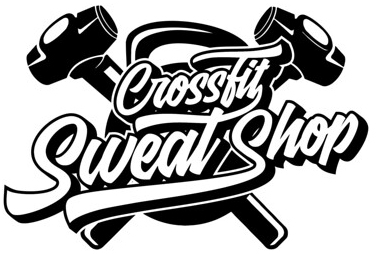Competing Vs. Training
What kind of mindset do you have when you walk into the gym? Is your goal to always go as fast, or as heavy as possible? Or, do you want to get better at a specific movement or skill regardless of time or loading? The approach you take to your day to day workouts can significantly impact your long term progress for better, or for worse. What I am alluding to is a topic I heard recently when I was listening to Ben Bergeron’s podcast: Chasing Excellence. The idea he was discussing was the difference between competing and training, and how most people spend too much time competing, when they need to spend more time training.

One of my most fond sweat shop memories was when I competed in the Crosstown Throwdown against CrossFit Oakland!
To give a little more background on what the competition mindset is, it is when someone values only the end result. How fast did they go, how heavy did they lift, how many reps did they do, those are a few examples. On the flip side, people who are in the training mindset are willing to sacrifice results now, for greater results later. Practicing a new rope climb technique even though it will make you go slower in the WOD, scaling down loading on a squat to work on technique, focusing on better breathing patterns even though it will lower intensity. Those are all examples of a training mindset because they sacrifice present results for future improvement. Now, you might think to yourself, “I don’t compete, I am not a competitive person.” Just because you don’t label yourself as a competitive person, or are not directly in a competition, does not mean that you’re not competing. If you’re constantly comparing your times to others, you’re competing. If you’re trying to max out loading in an EMOM or squat session, you’re competing. If you focus on speed rather than mechanics, you’re competing. I’ll be the first to admit, I used to always compete, ALL DAMN DAY (thanks Tara). 12 minute snatch EMOM? Time to hit a one rep max. Fran? Get the work done by any means necessary. Not lying on the ground in a sweaty heap after a workout? Didn’t push myself enough. I used to always push loading, time, and intensity as far as I could every time I was in the gym. While I was able to improve in multiple areas of my fitness in the short term, it wasn’t a sustainable long term practice. I would run into technical limitations on lifts, get nagging injuries, and would go through periodic burnout. All of this would in turn slow my progress, and eventually stop it completely.

Variety is the spice of life, changing focus can sometimes reignite motivation to train!
Eventually I wised up and stopped only focusing on quantitative results every single day. Now when I train if I feel like I am limited by a technical aspect in a movement, I have no problem diverting more of my attention to improving movement quality. To give an example I used to only know how to do to Russian Wrap style rope climb. For the longest time I kept putting off learning the pinch method because I knew it would slow me down for a bit. Finally, after getting fed up with rope burns and watching people climb the rope with ease using the pinch method, I bit the bullet and asked Marko to teach me. After he taught me I would practice the footwork by sitting on box and just focusing on getting my feet in the right place. From then on I forced myself to use it in workouts, and it while it was frustrating at first because slowed me down, I eventually learned the technique and am now much better at rope climbs!
You can see why always having a competition mindset isn’t a sustainable practice. Yes you will make progress in the short run but that progress will slow overtime, stop, and then you’ll end up regressing due to overtraining, or burnout. We do not need to always focus on quantitative results as a measure of success. Most of us could use with dialing back the intensity a few clicks. For people who are using CrossFit as a means to improve functionality, we do not need to be in the competition mindset as often as we think. I am not saying you shouldn’t push yourself physically and mentally. On a day to day basis you should push yourself, but that doesn’t have to end with you on the ground for 10 minutes after a workout. You can still challenge yourself by learning a new movement/skill improving a technical aspect of one.
Now, if you have made it this far without wanting to chase me out of the Sweat Shop thats awesome! Please understand that I am not advocating maintaining ONLY a training mindset. From time to time you should employ that competitive mindset! Do a competition every now and then, go for that big PR, compete with your buddies on a fun workout. We just need to recognize there is a time and place for that mindset, but its not an every day thing. Its okay to dial back the intensity and shift your focus to a qualitative goal for a day, couple days, or a longer stretch of time. I want to be healthy and to be working out for the rest of my life, and I am sure you want the same for yourself! If you have any questions or want to tell me that I am completely wrong (people liked my coffee articles a while back😄) please let me know!




Great post DJ! I listened to that same podcast a few months ago and it definitely clicked👌🏽
DJ since joining the Sweat Shop and observing you on my first on ramp class and asking James who is that guy? He is really fast! Hence my nickname for u “The Flash!” I have noticed a significant change in the way you have structured your way of working out and your focus to improve those skills and not always bust it hard and even though you are still impressingly FAST when doing Olympic lifts I recognize the dedication you now are putting into your skill work! That takes real reflection and a mature discipline DJ for one so young. Proud of u “Flash” for seeing this importance early on so like u stated u can be exercising for the rest of your life! Oh and ALL DAMN DAY!!!🏋️🏋️